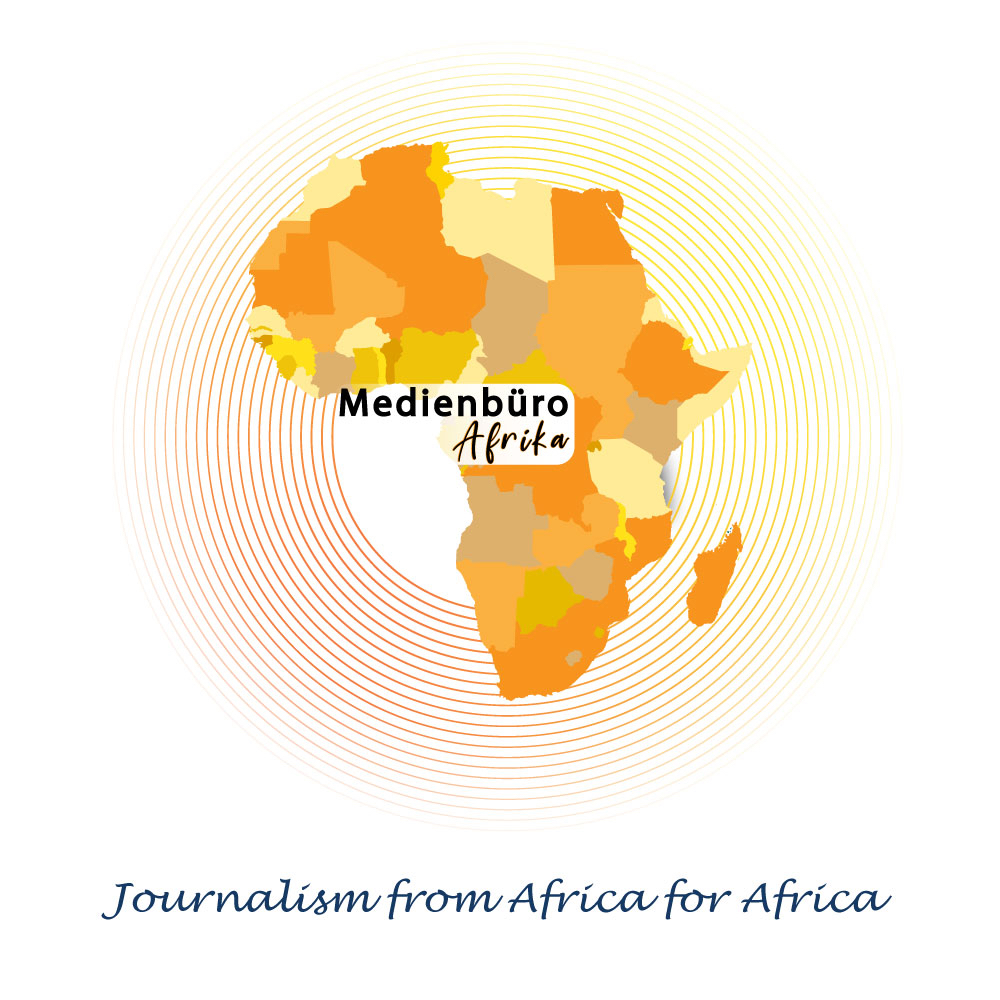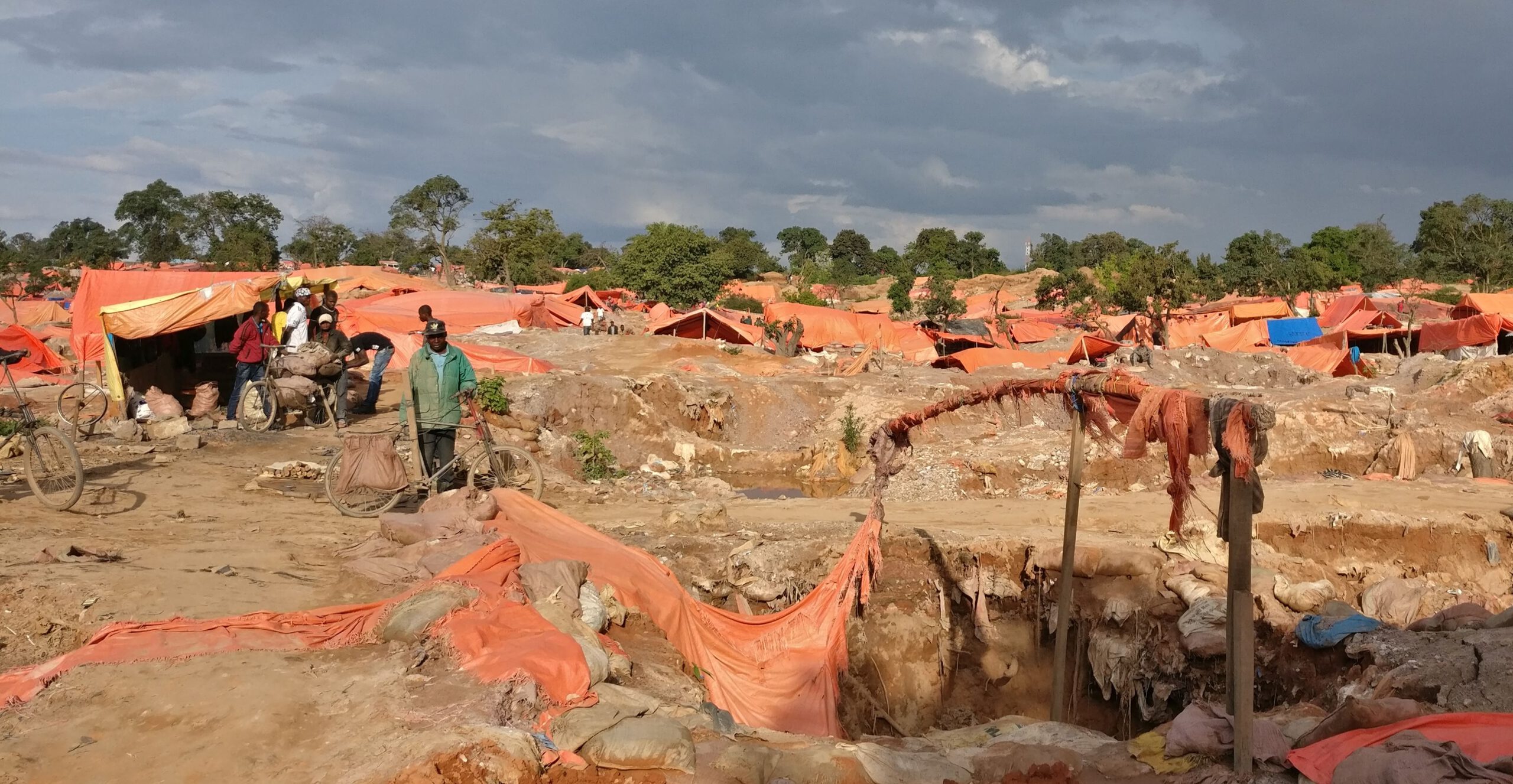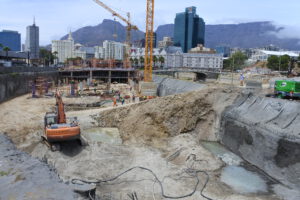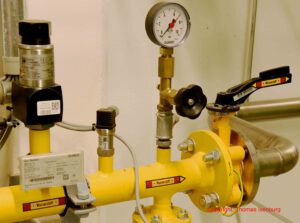Picture: BGR
Cobalt is a transition metal with a less than illustrious recent history. It is of dominant importance for the automotive industry because many batteries are installed for electromobility. Over 60 percent of the battery metal is mined in the Democratic Republic of Congo. A large part of the cobalt there is obtained in industrial mining. A widely varying proportion of urban mining production comes from small-scale mining and it has a lot to offer. Most of the ore is then processed locally into cobalt hydroxide and then delivered to China. There it is often used in batteries for electromobility.
In the recent past, small-scale mining has proven that stable, increasing demand can be met quickly. The living and working conditions for miners were terrible. But poverty is widespread in the country and small-scale mining is one of the few sources of income for local people. Therefore – despite the problems – it is not a solution to simply avoid small-scale mining or call for a ban from the buyer’s perspective. Then many people in Congo would no longer have any income and would not be able to feed their families. The aim of German development aid is therefore not to ban small-scale mining, but to make it more responsible.
It’s about risks and due diligence obligations, particularly child labor and the lack of supply chain transparency, which has already been discussed in the global media. Aspects such as the lack of occupational safety are also relevant. Operations are often carried out illegally or in at least legal gray areas. First, holes are dug to access the cobalt ore. Mining is carried out by excavating using manual tools, often to a depth of up to 80 meters. This often leads to contamination of rivers and soils in the region. The large number of abandoned opencast mines and dumps indicates that there was no proper recultivation. However, the environmental impact is largely caused by industrial mining.
The bags are then pulled out of the shafts on lines. The goods are then transported by truck to a depot. Here the miners sell their product in bags of cobalt ore. We then continue from the collection points. This is a special form of mining. The constant exposure to dust resulted in respiratory diseases and even carcinoma. As a result of poverty, child labor is widespread in the countries of the Global South. This is particularly bad if it means missing school. The worst forms of child labor represent the explicit risk in Congolese small-scale mining according to the requirements of the International Labor Organization (ILO). The “worst form” includes activities that harm the health, safety or morals of children and are carried out under coercion.
The price of cobalt has recently fallen again because other metals are often used in batteries for electric mobility. Demand for electric vehicles also remains below expectations. However, the problem will occur again and again, now only selectively and not generally. It is therefore important to recycle cobalt in the EU. An electric car contains an average of 5 to 12 kilograms of cobalt in its battery. An important legal basis is the EU Battery Directive. The EU document calls for 90 percent of cobalt to be recycled by 2027.
The situation currently appears to have been temporarily defused as the price of cobalt has fallen. This makes small-scale mining less attractive. Industrial support has expanded significantly. Eight months ago, a new mine was put into operation by the Chinese. It has become the world’s largest cobalt producer. This has reduced the relative share of small-scale mining. However, copper and cobalt ore is still mined by hand. The extraction of copper is currently particularly profitable for small-scale miners, says Dr. Philip Schütte from the Federal Institute for Geosciences and Natural Resources continues: “Small-scale copper-cobalt mining in the Congo is carried out illegally almost everywhere. The controversial discussion about this has tended to diminish somewhat. Even if small-scale mining is illegal, the authorities sometimes perform a control function, for example with regard to the ban on child labor.”
The situation has defused. Efficient recycling techniques for battery metals are required. This means that in the near future there will be a source of cobalt in Europe that promises more independence. However, the cobalt-containing batteries will be needed for a long time.
Author: Dr. Thomas Isenburg, science journalist
Allready published




